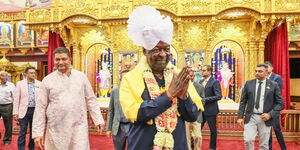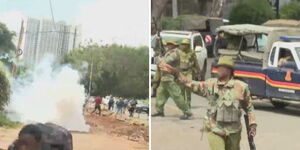Kenyans have often found themselves in trouble with police officers for not knowing of their rights.
The Kenyan Constitution and the National Police Act, however, limits the powers that police officers have when dealing with citizens.
Kenyans.co.ke has delved into five of these rules which should be at your fingertips.
1. Police officers are prohibited from ordering innocent commuters out of Public Service Vehicles (PSVs) if the driver has committed an offence.
An officer should instead ask the driver to pay a fine on the spot then issue them with a ticket to appear in court.
Passengers should only be ordered out of the vehicle if they are in excess or have not buckled their seat belts.
2. You cannot be arrested if you are found drinking alcohol in an unlicensed bar.
According to the Alcoholic Drinks Control, only the owner of the premises can be held liable.
3. A police officer is prohibited from confiscating driving licenses of motorists when they commit minor offenses.
Section 79(3) of the Traffic Act states that a police officer can only demand and confiscate a driving license if a person is charged with an offense named under the ACT.
4. No Police Officer is allowed to search your home without a warrant. Article 31 of the constitution states that every person has a right to the privacy of their home, property, and possessions.
5. The Eighth Schedule of the National Police Service Act maintains that it is an offence for a police officer to unlawfully strike or either use or threaten violence against any person.
Article 28 outlines that every person has the right to have their dignity respected and protected












